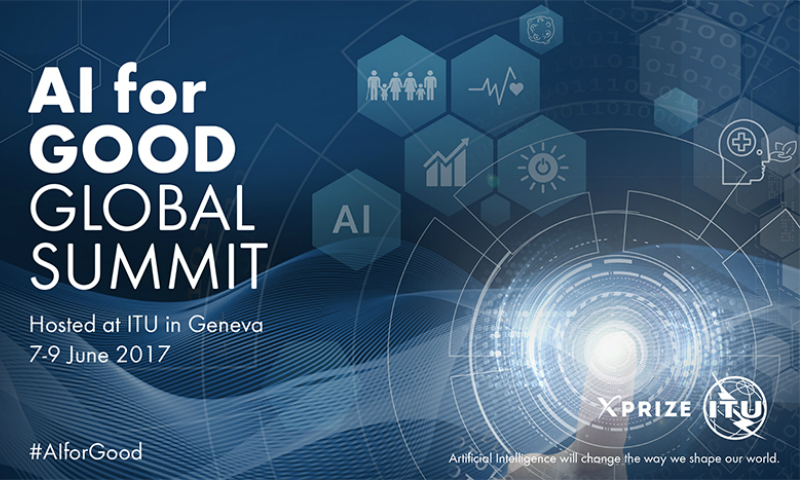
AI innovation will also be central to the achievement of the United Nations' Sustainable Development Goals (SDGs) and will help solving humanity's grand challenges by capitalizing on the unprecedented quantities of data now being generated on sentiment behavior, human health, commerce, communications, migration and more.With large parts of our lives being influenced by AI, it is critical that government, industry, academia and civil society work together to evaluate the opportunities presented by AI, ensuring that AI benefits all of humanity. Responding to this critical issue, ITU and the XPRIZE Foundation are organizing AI for Good Global Summit in Geneva, 7-9 June, 2017 in partnership with a number of UN sister agencies. The Summit aims to accelerate and advance the development and democratization of AI solutions that can address specific global challenges related to poverty, hunger, health, education, the environment, and others.
The Summit provides a neutral platform for government officials, UN agencies, NGO's, industry leaders, and AI experts to discuss the ethical, technical, societal and policy issues related to AI, offer recommendations and guidance, and promote international dialogue and cooperation in support of AI innovation.
The event will convene representatives of government, industry, UN agencies, civil society and the AI research community to explore the latest developments in AI and their implications for regulation, ethics and security and privacy. Breakout sessions will invite participants to collaborate and propose strategies for the development of AI applications and systems to promote sustainable living, reduce poverty and deliver citizen-centric public services.
 Welcome to the United Nations
Welcome to the United Nations